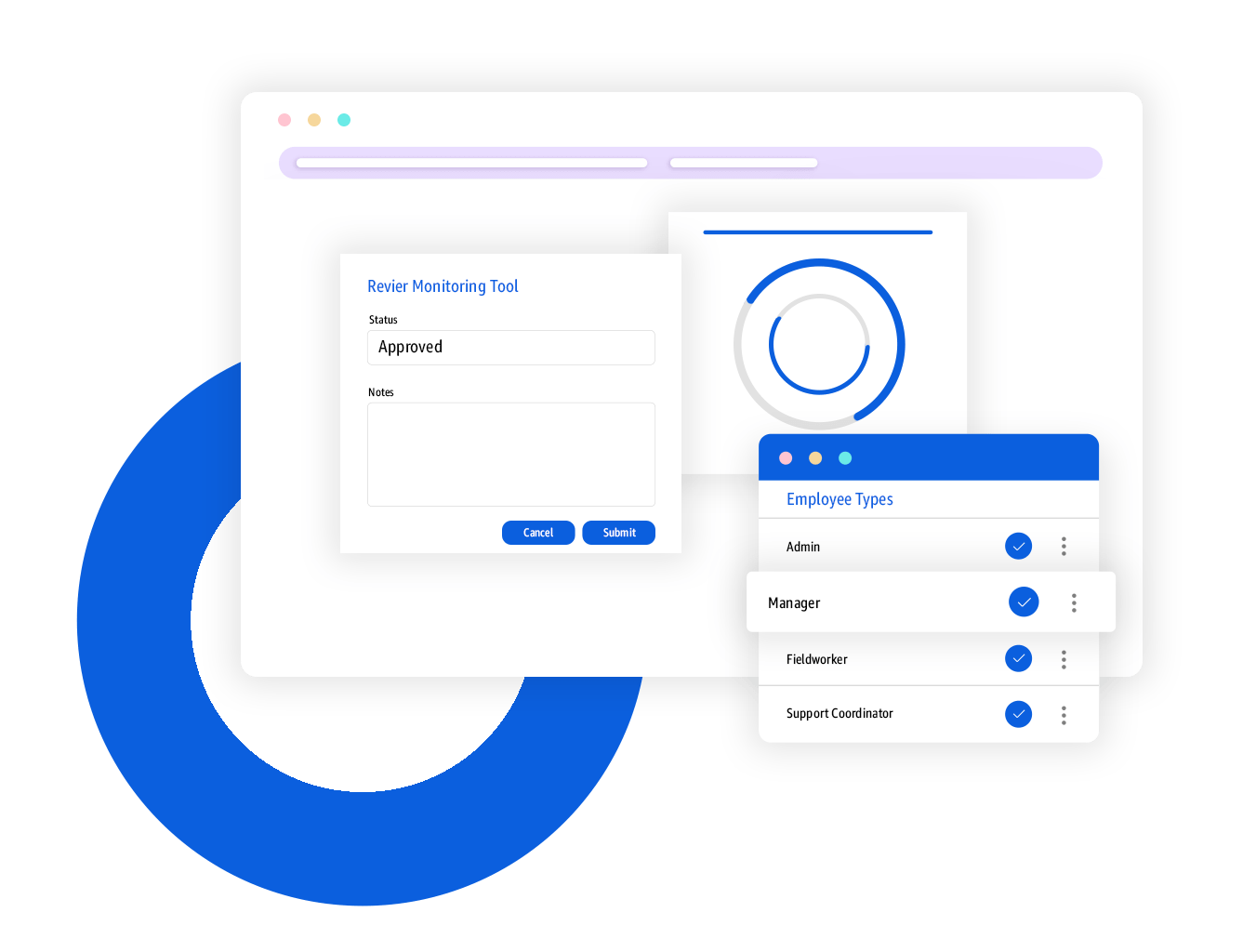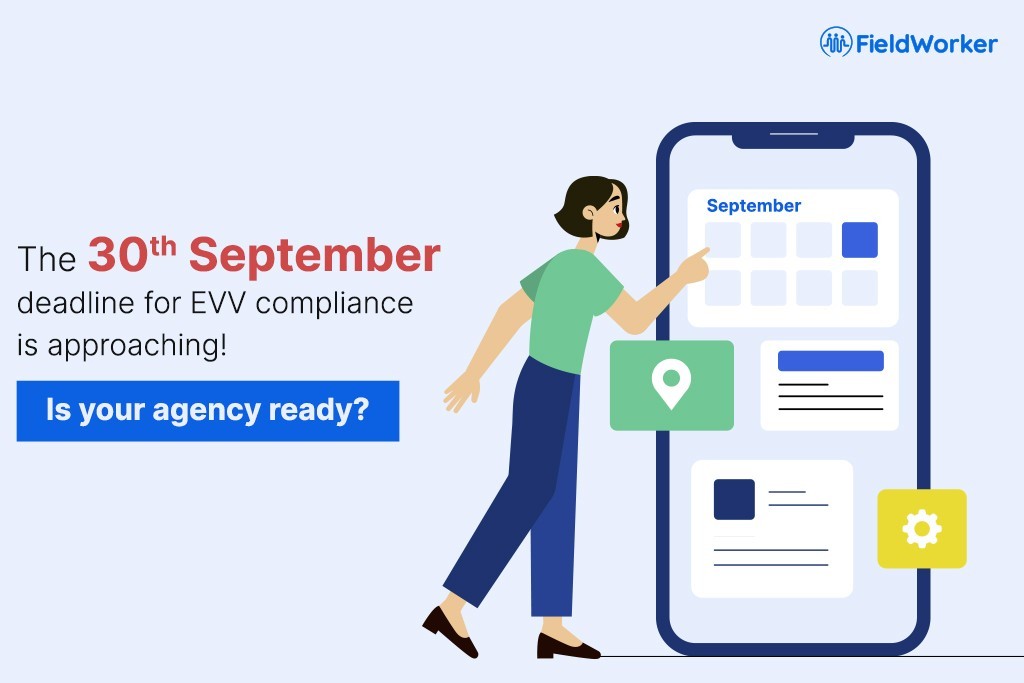The 30th September deadline for EVV compliance is approaching! Is your agency ready? Read below to learn more about EVV and how FieldWorker can help…
Electronic Visit Verification abbreviated as EVV, is a web-based system and verification app guaranteeing care services are provided to those who have been approved. These include individuals with special needs.
EVV: How does it work?
EVV’s system tracks visits with electronic verification from the moment a provider visits their patient. This system notes the time they arrive and leave the premises. It is achieved electronically through a phone call, a smartphone application like FieldWorker, or other EVV devices at their home.
Federal law now mandates that specific services in NJ’s Family care enact EVV systems compliant with the necessary laws. Along with the New Jersey Division of Medical Assistance and Health Services (DMAHS) – EVV Data must contain the following:
- Type of service provided.
- Date of the service.
- Person receiving the service.
- Individual providing the service.
- Time the service starts and stops.
- Location of the service delivered.
The DMAHS works with stakeholders to help address any issues to expect with an EVV system which . While ensuring the system abides with Federal guidelines, giving access to supported care.
Why does EVV need to be implemented now?
In 2016, Congress passed the 21st Century Cures Act, making EVV implementation compulsory for all Medicaid-funded care services by January 1st 2020, and mandatory by January 1st 2023 for home health services.
DMAHS received an approval from the Centers for Medicaid and Medicare Services (CMS) for an effort to implement the mandate by January 1, 2021 as a good faith and effort exemption, and since New Jersey Medicaid Services is both state and federally funded, the federal government also requested the state to abide with the 21st Century Cures Act or to expect their funding reduced.
How can EVV be successfully implemented?
With the EVV deadline fast approaching, it’s important to note that providers can continue delivering their services. However, they will not be able to bill for their services after September 30th 2021, please read here for more.
As it states in the link above if the EVV requirements are not met – the providers cannot bill for services. The EVV criteria can be met using an electronic device like a tablet or smartphone. Even a landline telephone to record information and verify that a service-visit occurred is feasible.
Applications on smartphones like FieldWorker meet all the EVV requirements. Streamlined and mobile-friendly, It is EVV compliant as per the Cures Act, making it easier for caseworkers to check-in and out for each visit. Recording the exact time and duration of each visit in addition to all other required information. Learn more about FieldWorker’s EVV and Safety benefits.
EVV Across States
States have had a lot of freedom with designing their programs to meet the requirements of the Cures Act. Each state is given the flexibility to decide who should manage the EVV systems, as well the technology that should be used..
Most states have adopted a flexible approach to this situation. Taking into consideration Stakeholders input. An example would be some states providing non-English Language options and privacy safeguards. That is thanks to the GPS technology used for verification (while visiting non-english speaking areas etc.)
In general, the EVV requirements in the Cures Act are intended to help reduce fraud and to streamline the process for both clients and providers.
EVV Challenges
Besides the setbacks caused by COVID-19, the flexibility given to states has its fair share of problems too.
That’s why each state chooses to interpret the many applications the way they prefer. The lack of CMS specifications means data requirements will be different across states. So, for both national and regional homecare providers, it’s a challenge administratively speaking.
Additionally, individual states and managed care organizations (MCOs) deal with different data elements, further complicating the sharing of data. This is in spite of the fact that EVV was meant to aid with the transparency of and access to data.
What to look forward to:
The right EVV vendor and healthcare organizations can do more than provide proof of visit to reduce fraud or monitor attendance. They can use EVV as a support to the care worker on the field and help transform the business digitally with an integrated approach to the whole operation, from recording client visits, schedules, and automatically collecting EVV-mandated data in an audit-ready overview.
FieldWorker can help do just that. It’s user-friendly features like voice-to text and awesome Customer service is another reason streamlined options are definitely the way to go forward. Additionally, boosting your organization’s productivity while improving health care services everywhere.

